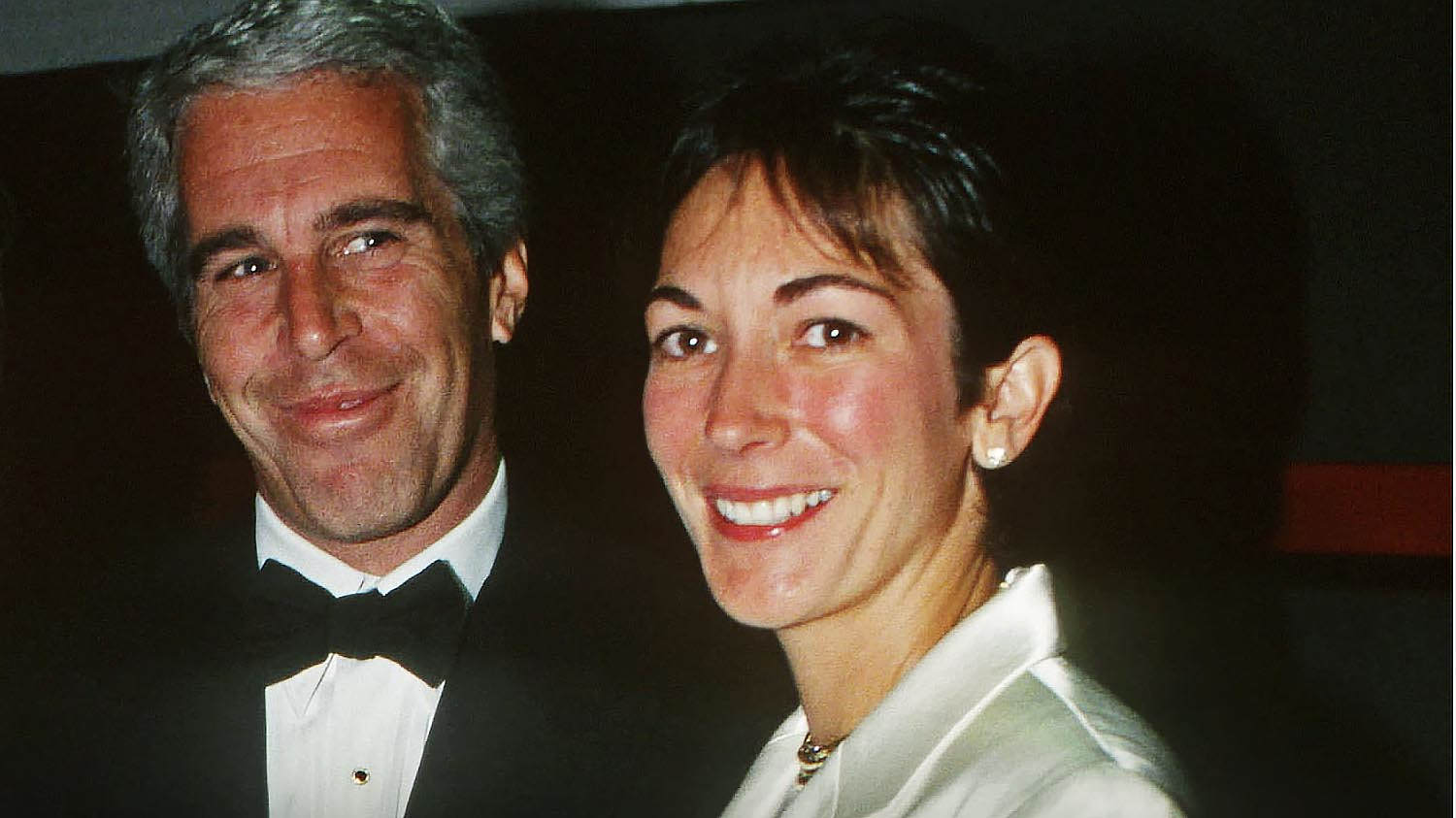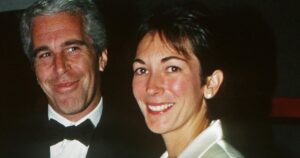https://theworldfinancialforum.com/participate/

WASHINGTON — Ghislaine Maxwell’s attorney Monday renewed his request that the Supreme Court overturn her 2021 conviction in New York for recruiting and grooming multiple teenage girls for Jeffrey Epstein to sexually abuse for over a decade.
In a new filing, Maxwell’s lawyer, David Oscar Markus, repeated arguments he made in previous filings that a non-prosecution agreement Epstein made with federal prosecutors in Florida should apply to Maxwell’s case in New York and any other part of the United States.
Maxwell’s lawyer asked the Supreme Court to take up her case in April. Justice Department lawyers responded in a filing this month and urged the court not to consider it.
Monday’s filing consisted of Markus’ response to the government’s arguments. The Supreme Court, which is on its summer recess, is unlikely to act on Maxwell’s case for months.
The filing includes no new information about Maxwell’s two days of meetings last week with Deputy Attorney General Todd Blanche.
Federal prosecutors have argued that the agreement applies only to southern Florida, where it was made. The federal judge who oversaw Maxwell’s trial in New York, Judge Alison Nathan, agreed.
Nathan wrote in a 2021 ruling that a Justice Department review found that no special promises were made to Maxwell that she would not be prosecuted federally outside South Florida.
Markus argued that Maxwell did receive those assurances.
“This case is about what the government promised, not what Epstein did,” he wrote. “Plea agreements are supposed to be strictly construed against the government, yet here the government isn’t even asking for the benefit of the doubt; it is asking for a blank check to rewrite its own promise after the fact.”
Nathan also noted in her 2021 ruling that the Florida non-prosecution agreement covered Epstein’s criminal activity from 2001 to 2007. Maxwell was prosecuted in New York for her conduct from 1994 to 1997, “some four years before the period covered by the Southern District of Florida investigation.”
Markus said in a statement that he was appealing to both the Supreme Court and President Donald Trump for help with Maxwell’s case. The Supreme Court could overturn Maxwell’s 2021 conviction in New York and order a new federal trial. Trump could commute Maxwell’s sentence or pardon her.
“President Trump built his legacy in part on the power of a deal—and surely he would agree that when the United States gives its word, it must stand by it,” Markus said.
“We are appealing not only to the Supreme Court but to the President himself to recognize how profoundly unjust it is to scapegoat Ghislaine Maxwell for Epstein’s crimes,” he added, “especially when the government promised she would not be prosecuted.”
In a dramatic legal maneuver, Ghislaine Maxwell—currently serving a 20‑year sentence for her role in Jeffrey Epstein’s sex‑trafficking ring—has petitioned the U.S. Supreme Court to overturn her 2021 conviction. At the heart of her appeal lies a controversial claim: that a 2007 non‑prosecution agreement (NPA) between Epstein and federal prosecutors in Florida extends immunity to “any potential co‑conspirators,” thus shielding Maxwell from prosecution in New York.
The New YorkerPeople.comAnadolu AjansımintNewsmax
The Legal Argument: A Deal Is a Deal
Maxwell’s attorneys assert that the government’s promise was plain and unqualified. In their filings, they argue:
“This case is about what the government promised, not what Epstein did.”
mintPeople.com
They underscore that the NPA’s language is not geographically constrained, implying that it should bind prosecutors nationwide. In their Supreme Court brief, they even make a broader appeal—to President Trump—suggesting that he built his reputation on “the power of a deal” and has authority to acknowledge the injustice.
mint
The Government Pushback: District Boundaries Matter
The Department of Justice, representing the U.S. government, has urged the Supreme Court to reject Maxwell’s appeal. Their argument hinges on legal norms and jurisdiction: the Southern District of Florida, where Epstein’s plea deal originated, traditionally cannot bind other districts—including New York—without explicit inter‑district or Criminal Division approval.
Good Morning AmericaThe Washington PostNewsmax
Solicitor General John Sauer insists Maxwell’s interpretation of the clause is incorrect and emphasizes that she wasn’t a party to the agreement, potentially weakening her claim to co‑conspirator protection.
Good Morning America
Circuit Split and Supreme Court’s Discretion
The dispute reveals a broader legal tension: lower appellate courts have diverged on whether plea agreements can bind co‑conspirators outside the originating jurisdiction—an apparent “circuit split.” Legal scholars argue that resolving such discrepancies is a classic role for the Supreme Court.
NewsmaxThePrintThe New Yorker
If the justices choose to hear Maxwell’s case, they could grant oral arguments in their new term starting October 2025, with a decision expected by mid‑2026.
Newsmaxchinadailyasia.comThePrint
That said, Columbia Law professor Daniel Richman has warned that the peculiar nature of Epstein’s deal may make the case an unattractive vehicle for Supreme Court review. “There were many strange things about this deal,” he cautioned, noting that political repercussions could further dissuade the Court.
ThePrint
Stakes Beyond Maxwell’s Case
Maxwell’s appeal is about more than a single conviction—it strikes at the heart of prosecutorial accountability and the sanctity of plea bargains. The National Association of Criminal Defense Lawyers has joined the call for review, arguing that if agreements can be selectively honored, the integrity of the justice system is at risk.
chinadailyasia.comThe New YorkerThePrint
Meanwhile, Maxwell’s legal team has also sought to block the DOJ’s efforts to unseal grand jury transcripts, arguing such disclosures could prejudice her pending appeal and violate due process.
mint
Public Backlash and Political Undercurrents
Maxwell’s attempts have sparked fierce public reaction. Victims’ advocates, including the family of Virginia Giuffre, have vehemently opposed any leniency or pardon, which remains politically sensitive.
The Times+1The Guardian
At the same time, recent DOJ interviews—where Maxwell denied knowledge of an alleged “client list” and said she never saw high‑profile figures act inappropriately—have drawn scrutiny for potentially influencing public opinion and political calculations.
ReutersThe Washington Post+1
Conclusion: A Deal or a Distraction?
Ghislaine Maxwell’s Supreme Court appeal casts a spotlight on a rare and unresolved question of federal law: Can a plea agreement in one district shield individuals in other jurisdictions? If accepted, the case could reshape plea enforcement norms. If rejected, it would reaffirm prosecutorial autonomy across districts.
Either way, the timing—marked by growing public demand for transparency in the Epstein saga and intense political pressure—adds layers of intrigue. The justices now face a choice: engage with a legal precedent that affects plea bargains nationwide or sidestep a flashpoint entangled with deep political and social currents.
